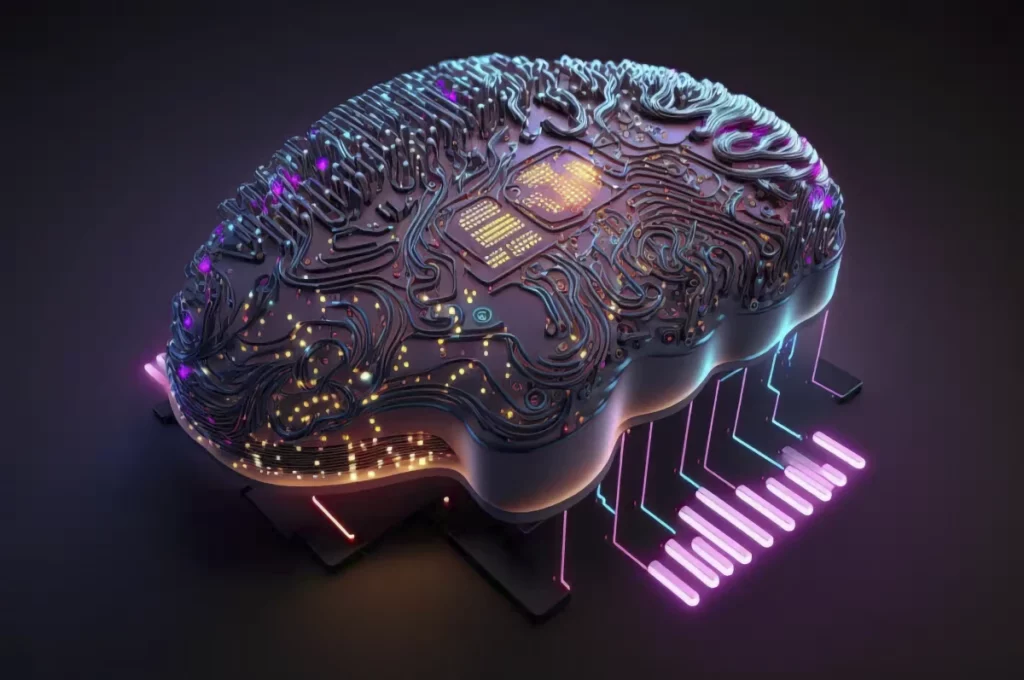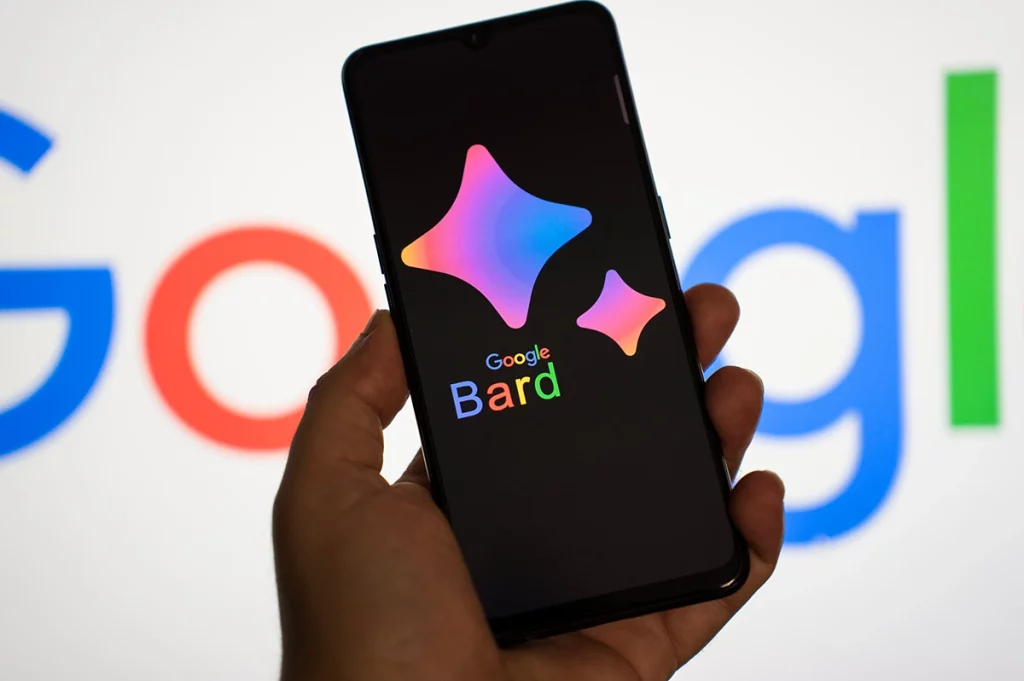Google Bard Enhances User Experience by Retaining Vital Details
If you are a user of Google Bard, then you are going to love the new feature the organization is introducing known as ‘Memory’. This great improvement will give you the ability to personalize the chat with the advanced AI bot by giving it the ability to recall information. Indeed, it can offer recommendations because of this. Help enhance our communication with you in the future. This makes Google Bard different from other AI chatbots such as ChatGPT and Bing Chat.
The memory feature, as learned from 9to5Google, targets to adjust to the explanation you give while conversing with Google Bard. Storing this information makes the chatbot knowledgeable about your preferences and needs, and this puts it in a position to offer you appropriate responses and recommendations in the subsequent conversations.
The addition of the memory feature in Google Bard claims the company’s steady efforts to improve its artificial intelligence-centered services. With this advent of it, the chatbot becomes even more helpful to the user since it tends to orient in the individual with the passage of time. Take your seats, folks; it is now time for human-like interaction with artificial intelligence.

Understanding Google Bard’s Memory Feature
How does the Memory Feature work?
The way that it advances memory is through the creation of an event that is associated with a particular memory, helping the brain to recall them easily.
The creation of the Google Bard’s Memory feature has only one purpose in mind. Being able to remember small things, you tell them, therefore being able to provide service. It enables the AI technical or the chatbot to save data in order to provide you with results and suggestions. Google Bard’s new feature is that it can learn your preferences and make your exchanges with the chatbot better.
For example, if you say that you have two kids, Google Bard will adjust to the best of its capabilities the information it presents to you because it assumes that you have family responsibilities. Likewise, if you tell it that you do not like taking meat, it will bring recipes that do not include any form of meat.
User Interaction and Experience
To say the least, it would be fluent when the memory feature is launched into Google Bard interaction. New preferences or preferences that were deleted can be modified easily through the page, which is shown in the left-side menu. However, there is an important consideration to note here, and that is that you are the one who gets to set those preferences within the chatbot, and therefore you determine what happens next.
As you are aware, when you engage with Google Bard, whatever you type will produce better search outcomes. Since the chatbot keeps your details, it provides a better answer and is here to ensure you get a colorless experience as per your preferences.
User Interaction and Experience
Google Bard’s memory feature has an influence on its services in terms of improvement of service provision. With the capability to recall information that users like you disclosed during your previous interactions, this chatbot can provide timely and appropriate information the next time you converse with it. It also enhances your experience because the system continually becomes familiar with your requirements, wants, and environment.
The memory feature will ensure that Google Bard gives users ownership, relevance, and personalization in the services that it offers. In this way, the chatbot is able to monitor various details you often share so that you can be provided with suggestions and recommendations based on your needs. This leads to responses to the user or a context that enables optimization of the experience of using an application.

User Data Handling and Privacy
Data Privacy Compliance
It is, however, evident that privacy is well given attention in designing what is called the Google Bards Memory. Since by retaining information from your conversations to improve its subsequent responses, Bard relies on data and information, Google protects the data and information with the help of data privacy regulations. Your data is managed frequently with the necessary measures taken to prevent anyone from getting unauthorized or using it maliciously.
User Control over Data
With the help of the memory feature of Google Bard, you have control over the data that is being stored by Google Bard. For the purpose of privacy, Google Bard comes with a button on the side of the screen that puts a lock on the memory button if you have any privacy issues. Additionally, you can:
- Enable or disable data saving: If you do not fancy sharing your Bard’s anonymous performance with others, you can turn off the data-saving feature in its entirety. Otherwise, you have the choice to turn on the Auto option, with which Bard will automatically clear your browsing histories at certain intervals.
- Manage your data: With your data, there is always the flexibility of how you want to deal with it. You also have the right to update, modify, or remove your data at any time that you wish to do so. Google respects users’ data and offers transparency, choice, and security in case of data operations.
To give these user controls and follow data privacy regulations, Google Bard wants to provide you a service and respect your data.
Looking ahead at the future of the Google Bards Memory feature:
- Potential Improvements:
So as Google Bards Memory grows, the services offered will become personal. The system used in the AI will have enhanced features of identifying you and remembering the things close to your life. This means to receive offers and recommendations that are relevant and targeted for your needs and inclinations in such fields as shopping, entertainment, and traveling.
Apart from enhancing altogether its well-established competencies,
- New Interaction Opportunities:
Google Bard may integrate with the applications or the platforms in the future. What this would enable is a user experience across multiple services.

Expected Technological Advancements
Some opportunities for further developments of the Google Bards functionalities appear because of the advancement of the AI technology. The Google Bards Memory feature will also involve some of the machine learning technologies. That is quite interesting, and as the algorithms keep improving, Bard will be better at understanding. The real-time interaction with consumers is optimally enhanced when analyzing your data.
These advances are expected to bring about the following benefits:
- Improved conversation capabilities: This mostly suggests that Google Bard is quite likely to do rather well in capturing context and subtleties right up to the moments when it interacts with the users and presumably ‘feels’ engaged.
- Enhanced user interface: Therefore, an intuitive and easy-to-navigate interface will allow Bard to benefit from the memory feature in the most possible way—by making the usage of this feature rather comfortable for the users to deal with entries in the memory, input them, manage them, and control them.
Using these innovations together with the enhancement of the Google Bards Memory feature, the user can expect in the coming years of advanced services and products that are more personalized and efficient.
Frequently Asked Questions
What advantages does Google Bards Memory feature offer?
The Memory feature significantly enhances Google Bards service by retaining details shared with it. This ability enables the AI chatbot to provide relevant responses based on previously shared context. Consequently interactions with Google Bard become more efficient and effective.
How does the Memory feature enhance user experience, on Google Bard?
Google Bards Memory feature enhances the user experience by adapting its responses and suggestions to needs and preferences. For instance if you have mentioned that you have two children or prefer meals the chatbot can utilize this information to recommend family activities or suggest suitable recipes. This personalized approach makes interactions, with Google Bard more enjoyable and practical.
What sets Google Bard from chatbots?
Google Bard stands out from its competitors primarily due to its ability to adapt to user specific details. The chatbot can. Recall information as needed enabling it to provide relevant responses and suggestions. Consequently engaging with Google Bard feels like a conversation giving it an advantage over other AI chatbots.
How does the Memory feature impact the functionality of Google Bard?
The Memory feature significantly impacts the functionality of Google Bard by allowing it to offer responses based on remembered details, about users. As a result the chatbot can provide suggestions and assistance that are tailored specifically to situations and preferences. This heightened level of personalization enhances the usefulness of the chatbot making it a powerful digital assistant.
What makes Google Bard different, from AI chatbots?
Google Bard stands out by its ability to remember and adapt to the information you provide. With its Memory feature and strong language understanding Bard offers assistance that caters to your individual needs and interests. This level of customization sets Google Bard apart as an assistant that’s more aware of context and effective in its support.
How does the ability to remember details enhance the performance of Google Bard?
Remembering details greatly improves the performance of Google Bard as it allows the chatbot to grasp your context, preferences and requirements. This understanding enables Bard to offer precise responses or suggestions making it an efficient and effective tool, for answering queries giving recommendations and assisting you in navigating your digital world.







